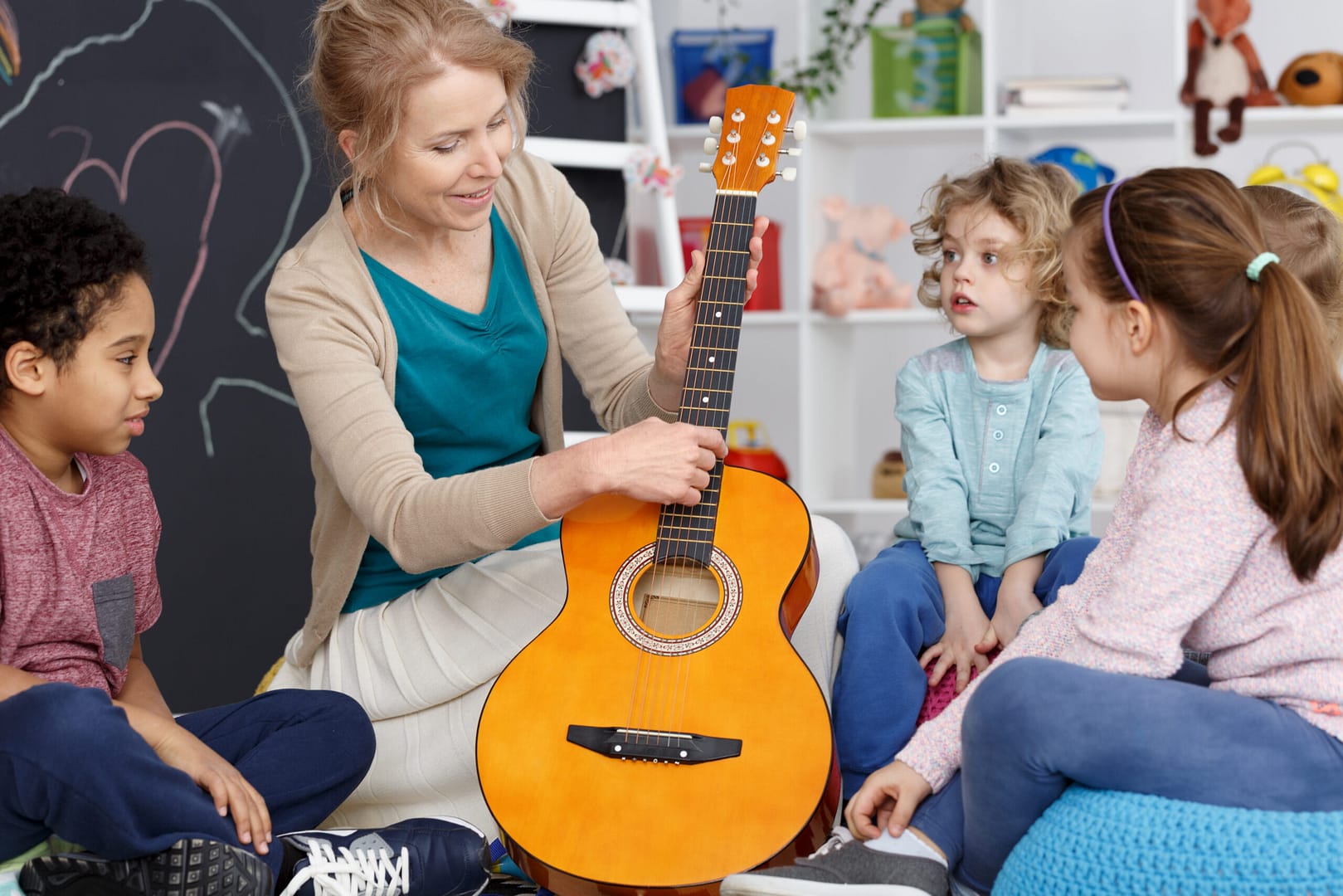What The New National Plan For Music In England Means For Primary Schools
Written by Elizabeth Stafford
Published on 28th June 2022
Last Updated: 17th July 2024
Written by Elizabeth Stafford
Published on 28th June 2022
Last Updated: 17th July 2024

The new National Plan for Music in England (NPME) has just been published to cover an eight-year period up to 2030 after the previous plan expired in 2020. The previous iteration of this document was much more relevant to Music Hubs than it was to schools, but this time around, schools and curriculum music are fully included in the plan. It should be noted, however, that the plan remains a non-statutory document, which schools can choose whether to engage with or not in primary school music lessons.
The plan has three stated goals, and in this blog, we look at the first goal, as this is most relevant to primary schools: “All children and young people receive a high-quality music education in the early years and in schools.”
The plan identifies the main practical mechanisms for achieving high-quality provision as having a designated music lead and a Music Development Plan. For multi-academy trusts, it also recommends an additional trust-wide music leader and development plan on top of those for the individual schools. Of course, schools are already required to have a subject lead in place, and one of the main roles of a subject leader is to produce a subject development plan, so, hopefully, most schools are already ahead of the curve in this regard! Although acknowledging that it is not a statutory requirement, the plan recommends that schools should use the next academic year to create a development plan ready to roll out in 2023/24.
The plan identifies ‘key common features of excellent provision’ that the DfE would like to see offered in every school, and planned for within the school music development plan:
The main statement that schools are bound to notice is the reiteration of the suggestion made in the Model Music Curriculum (MMC) that schools should be delivering at least one hour per week of curriculum music. The timetabling barriers to doing this are significant for many schools, of course, as was discussed when the MMC came out in 2021. This one hour per week is meant to be in addition to instrumental and vocal lessons and ensembles, and musical events and opportunities, which the document states ‘should be accessible to all pupils’ (p. 18). This raises other serious questions around how the costs of such extra-curricular provisions can be covered in order that these are truly available to ‘all’ pupils, and how they can be accommodated without major investment in building works for smaller school sites. The plan rightly states that schools should consider how music subject leaders will be given time to manage what might be a considerable expansion in their current role, but stops short of suggesting the reintroduction of teaching and learning responsibility (TLR) payments points for music at primary level!

Schools will also note the suggestion that ‘a primary school’s music curriculum should be developed and ideally delivered by a music specialist wherever possible, but where it isn’t possible, by a designated music lead supported with appropriate training’. Fortunately, for Kapow Primary customers, our scheme is designed with inbuilt CPD to turn every teacher in your school into a specialist over time, which will make this area of the plan easier to achieve!
Many schools have been wondering how the MMC will fit into the National Plan for Music Education, and in common with Ofsted’s announcement when the MMC was published, this plan makes it clear that the DfE also does not expect schools to use it. Schools must simply ensure that their curriculum is ‘at least comparable in breadth and ambition’.
The NPME also recommends that all schools provide instrumental tuition in whole class or small groups for at least a year as an integrated part of the curriculum, without passing on the costs of provision to parents. This may be a tall order for some schools, particularly as the plan states that it expects schools to pay Music Hubs for this provision, which seems to signal a move away from the provision of these programmes as a funded core role that hubs offered free or at a subsidy for schools to buy in.
A new and welcome development is that schools are to be active partners in Music Hub CPD networks and support systems. Schools are, of course, the experts in curriculum music because they are the ones delivering it all the time. The previous plan failed to recognise this, and instead placed the onus on the Music Hub to act as the sole ‘expert’ in their region over all matters to do with music education. It will be great to see schools stepping up across the country to provide peer-to-peer support under this new partnership structure. As we at Kapow Primary know, it can be tricky to help non-specialist colleagues teach music with confidence, and learning ‘on the job’ from someone who understands exactly how it feels to be a non-specialist teaching music in a school is a powerful form of CPD.
You can watch a webinar recording discussing the NPME in more detail here.